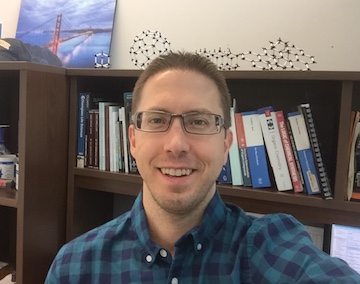About the Seminar
Alcohols are one of the most prevalent classes of organic molecules in natural products, while C–H bonds are ubiquitous in diverse compounds from complex medicines to simple hydrocarbons. We are investigating the use of cobalt complexes as light-driven catalysts for the activation of alcohols without prefunctionalization. Applications to deoxygenation as well as C–C bond-forming processes are being pursued. In parallel, we are developing a photoredox C–H bond activation method for the direct functionalization of caged hydrocarbons such as adamantane and higher order diamondoids. We have developed a new H-atom transfer catalyst with an unprecedented selectivity profile between different C–H bonds.
About the Speaker
Dave Martin grew up in Calgary, Alberta, Canada and received his Bachelor of Science degree in Chemistry from the University of British Columbia. In 2005, he moved to Montreal to work at the Merck-Frosst Centre for Therapeutic Research in the Medicinal Chemistry Department. In 2011, Dave obtained his Ph.D. from the University of California, Irvine where he worked with Prof. Chris Vanderwal on the application of Zincke aldehydes toward the synthesis of Strychnos alkaloids, including a short synthesis of strychnine. After pursuing post-doctoral research in the lab of Prof. Dave MacMillan in the area photoredox catalysis, Dave joined the Chemistry Department at the University of California, Riverside. His group develops new catalytic transformations and novel strategies for bond activation. The overarching goal of his research program is to enable the efficient synthesis of biologically active targets and synthetic probes for the study and treatment of human disease.


